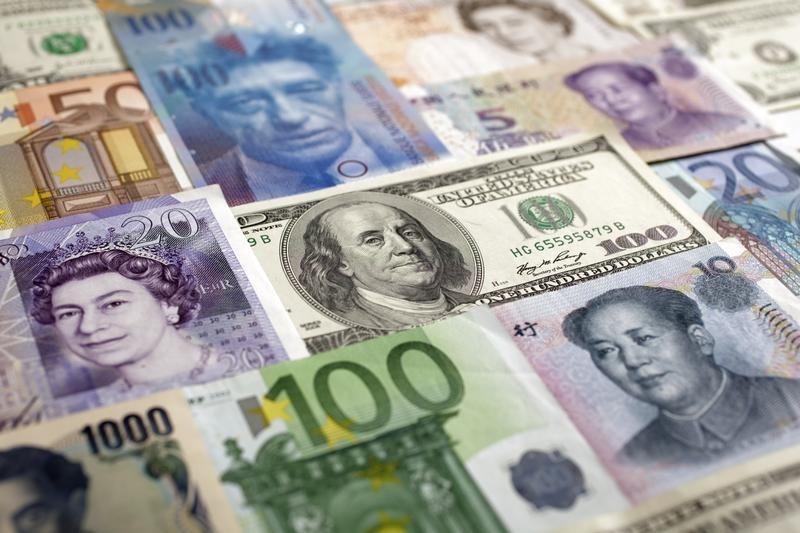* Safe havens extend gains as Mideast tensions rise
* Yen hits three-month high
* Gold surges to highest since 2013
* Graphic: World FX rates in 2019 http://tmsnrt.rs/2egbfVh
By Tom Westbrook
SINGAPORE, Jan 6 (Reuters) - The safe-haven yen touched a
three-month high on Monday and gold jumped as investors fretted
that the killing of Iran's most prominent military commander by
the United States could trigger a broader Middle East conflict.
U.S. President Donald Trump warned of a "major retaliation"
if Iran hit back, while Iran's replacement commander vowed to
expel the United States from the region. "I think markets are going to remain pretty nervous on
potential Iranian retaliation and what Trump might do next,"
said National Australia Bank's head of FX strategy, Ray Attrill.
On Sunday, Iran further distanced itself from the 2015
nuclear agreement with world powers, which the United States
witrhdrew from in 2018, saying it would continue to cooperate
with the U.N. nuclear watchdog but would respect no limits to
its uranium enrichment work. The yen JPY= , regarded as a haven in times of market
turmoil by virtue of Japan's status as the world's biggest
creditor, rose as much as 0.3% to 107.82 per dollar early in
Asian trade, its strongest since October 2019.
It handed back most of those gains later though, even as
gold gained and stocks slid.
"It's a wait-and-see but it's very tense," said Sean
MacLean, research strategist at Pepperstone, a brokerage in
Melbourne.
The Swiss franc CHF= rose 0.1% to 0.9712 francs per
dollar, while the euro EUR= and pound GBP= were steady.
The dollar crept higher against riskier currencies such as
the Aussie AUD=D3 and the kiwi NZD=D3 . Against a basket of
currencies .DXY the greenback steadied at 96.852.
Spot gold was 1.6% higher XAU= , at an almost seven-year
high, and oil rose on fears any conflict in the region could
disrupt global supplies. O/R
The moves extended a flight to safety that began on Friday,
after Iranian Major-General Qassem Soleimani was killed on
Friday in a U.S. drone strike on his convoy at Baghdad airport.
The attack took U.S.-Iranian hostilities into uncharted
territory, stoking fears of a major conflagration. The Australian dollar/yen pair - a gauge of risk sentiment
because the Aussie is an export-oriented currency compared with
the yen's safety status, has been among the biggest movers, with
the yen rising 1.1% since Friday. AUDJPY=
U.S. Secretary of State Mike Pompeo said Washington would
target any Iranian decision-makers it chose if there were
further attacks on U.S. interests by Iranian forces or their
proxies.
The European Union, Britain and Oman, meanwhile, urged the
two sides to make diplomatic efforts to defuse the crisis.
"The last thing markets want is a move from a tit-for-tat
tariff war to sabre-rattling in the Gulf," a strategist at
Singapore's DBS Bank wrote in a note on Monday.
Weak showings in factory activity surveys in Japan and China
on Monday only added to gloom over the outlook for global growth
after a disappointing U.S. manufacturing readout on Friday.
Service sector surveys in Europe, due later on Monday and a
U.S. non-manufacturing survey due on Tuesday were also in focus.
So too were November trade, construction approvals and
retail figures for Australia through the week, ahead of a
central bank meeting in a month.
